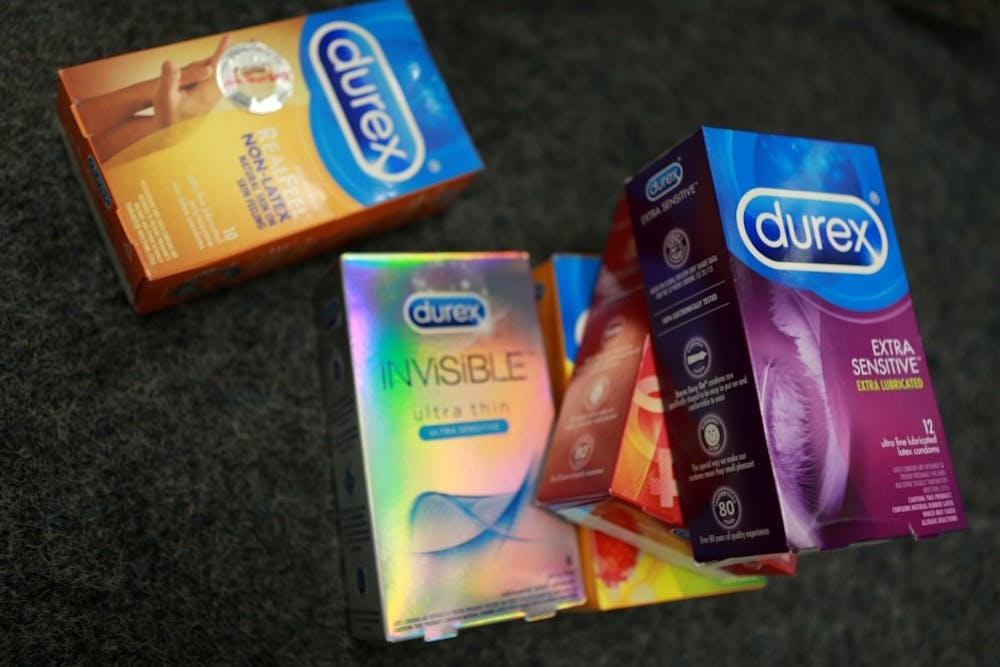An analysis of a recent survey from the Centers for Disease Control and Prevention revealed that Philadelphia has the third highest STD rate in the nation.
The report, conducted by online medical website Innerbody, found that Philadelphia had 1,822 STD cases per 100,000 people, placing behind only Baltimore and Jackson, Miss. in per capita sexually transmitted infections. Doctors say Philadelphia's high STD frequency is due to factors such as the city's high poverty rate and severe opioid epidemic, as well as a general nationwide rise in unprotected sex.
A recent decrease in condom usage, especially in adolescents, contributes to this nationwide trend, assistant professor of Pediatrics at the Children's Hospital of Philadelphia Sarah Wood noted. Wood said at the beginning of the HIV epidemic, public concern about STDs was at an all-time high, but that this diligence has since tapered off due to advances in HIV treatment and prevention technology. Wood also attributed decreased condom usage to insufficient school sexual education programs and lessening concern about STDs and HIV.
She said mobile dating apps and social media may play a role in increasing the number of peoples' sexual partners.
“The barrier to sex is a lot lower, and the probability that you’re having sex with someone you don’t know as well, meaning that you may not be as likely to engage in conversations about prevention, is much higher,” said Wood.
Penn Medicine Professor Judith O’Donnell agreed the rise in STDs is likely due to an increase in unprotected sex. However, she said it is important to consider other specific factors within a community.
Robert Gross, a Penn Medicine professor, said that situational factors, such as poverty, substance abuse, and mental illness, increase the risk of getting a sexually transmitted infection which can then create a vicious cycle. For example, an STI might make it more difficult for someone to obtain or maintain employment, thus increasing that person’s chances of remaining or becoming poor.
“So an individual who is poor is more likely to have sexually transmitted infections, and their poverty contributes to sexually transmitted infections," Gross said.
RELATED:
Penn Medicine researchers develop vaccine for genital herpes
On World AIDS Day, expert speaks about the effects of implicit bias and microaggression

Perelman School of Medicine professors said there are numerous factors that have led to the rise of STDs. (File Photo)
STI and STD are terms often used interchangeably, though infections are not technically classified as diseases until symptoms appear.
The most common STD in Pennsylvania and the nation is chlamydia, which caused 59,340 infections in 2018, an increase from the 56,447 cases reported in 2017. Gonorrhea and syphilis are also on the rise in the state. They caused 15,887 and 2,414 infections in 2018, respectively, according to the CDC's report.
Quadrangle Residential Advisor and College junior Charles Curtis-Thomas said members of Penn Violence Prevention gave a presentation during his RA training about the importance of having conversations about sexual health. Curtis-Thomas added leadership roles within the University should have candid conversations about sexual health.
“A lot of times we’re not always having these conversations," Curtis-Thomas said. "So it’s important to have those people who are in leadership positions be trained so when it does come up they’ll be prepared.”
College first-year in the Vagelos program and Women in Science residential program Lily Sutton said most of her peers seem relatively unconcerned about STDs.
“I feel as though Penn students take kind of a joking standpoint to it and they don’t really recognize how bad it can be if they don’t take it seriously," Sutton said.
Wood said college students are particularly at risk of contracting an STD. O'Donnell urges Penn students to protect themselves and take advantage of resources available to them, like free condoms and free or low-cost STI testing.
“Condoms, condoms, condoms!" O'Donnell said. "Protect yourself. That’s the best thing you can do.”









